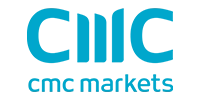Table Of Contents
- Why is Australia an Important Financial Capital?
- ASIC in Brief
- What Protection Does ASIC Provide FOREX Traders?
- Best ASIC-Regulated FOREX Brokers 2026
- How to Verify that a Broker Is ASIC-Regulated
- How Much Money Do You Need to Get Started?
- How to Avoid Scams Through ASIC
- What to Look for Among the Best ASIC-Regulated Brokers?
- Commission and Fees
- Using Leverage with ASIC-Regulated Brokers
- ASIC and Negative Balance Protection
- Tradable Assets and Instruments
- Payments, Deposits, and Withdrawals
- The Importance of Customer Service
- Ask Other Traders on Our Network
- Trading Platforms, Tools, and Features
- Tips to Get Started Trading with an ASIC-Regulated Broker
- How to Improve Your Knowledge of FOREX Trading
- Filing a Complaint Against a FOREX Broker
- Let’s Recap
- Arincen’s Review Methodology
Best ASIC-Regulated FOREX Brokers
With many years of meticulous FOREX broker testing, Arincen stands out as a voice of authority. Our analyses, shaped by exhaustive data collection, are trusted by many. Each year, we gather 120 data points from more than 100 brokers. Our team of more than 20 people collaborate extensively to produce high-quality broker reviews like this one. For a detailed explanation of how we test brokers, navigate to the bottom of this article.
Note: We earn money by selling ads, placements, or through partnerships with some companies we have agreements with, learn more.
Like many new FOREX traders, you may be wondering whether your money is safe when you start investing. Beyond the polished online-user interfaces and the smooth marketing messages, do you really know your FOREX broker? More to the point, can you ever really know the inner workings of these companies?
The answer is no. We are here to tell you that this fact does not have to be as alarming as it could be. But, you have so many questions. If a broker is not listed, what does its balance sheet look like? What is being said behind closed doors? You will never know your FOREX broker any more than you can know the bank that keeps all your money.
That’s where regulators come in. It’s their job to take a good long look under the hood of registered financial companies. For this reason, knowing who the most strict regulators are can be to your benefit. In what follows, we will present all the relevant information about Australia's tier-one FOREX regulatory body, the Australian Securities and Investments Commission (ASIC).This due diligence is an important prelude to any activity, as it ensures the safety of your investments while also safeguarding your funds from being abused. These two pledges are at the core of what FOREX watchdogs do. We will also give you a list of the Best ASIC-regulated brokers according to our research.
Why is Australia an Important Financial Capital?
To begin, it's worth noting that ASIC-regulated brokers are not limited to serving clients from Australia alone. You don't need to reside in Australia to benefit from ASIC's exceptional regulatory oversight.
Australia is a significant financial capital on the global stage. Several factors contribute to its prominence as a worldwide financial center and a hub for trading markets:
Economic Stability: Australia has enjoyed a reputation for economic resilience and stability, which fosters a trustworthy environment for depositors and investors alike.
Financial Privacy: Traditionally, Australian financial laws have emphasized privacy, drawing affluent individuals and corporations from around the globe. Despite recent adjustments toward greater transparency due to global standards, the commitment to protecting financial information remains robust.
Advanced Financial Infrastructure: Australian banks rank among the leading and most influential globally, with Sydney and Melbourne emerging as key centers for wealth management and private banking. Despite facing challenges, such as the Royal Commission inquiry into banking practices, Australia's financial sector continues to be a powerhouse.
Currency Resilience: The Australian Dollar (AUD) is often seen as a resilient currency, attracting investors during periods of global economic turbulence, thus underscoring Australia's financial significance.
Regulatory Framework: These aspects underscore why Australia offers a well-defined and stable regulatory environment. ASIC plays a pivotal role in ensuring a secure and transparent financial market, underpinning the country's status as a leading financial hub.
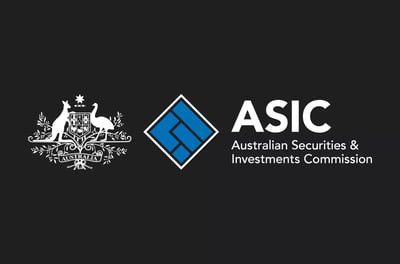
ASIC in Brief
Why is ASIC so well regarded? It is the Australian body responsible for the regulation of the financial sector in the country. This includes the oversight of banks, insurance companies, stock exchanges, FOREX brokers, and other financial intermediaries operating within Australia.
ASIC is an independent commission with its own legal structure, based in Sydney. It operates independently of the Australian government and the Treasury and reports directly to the Australian Parliament.
In the world of FOREX companies, in particular, ASIC fulfills two primary roles. The first is to ensure transparency in financial dealings. The second is to protect consumers by preventing scam brokers from defrauding their clients. For more insights into the dynamics of a FOREX scam, read our article here. Owing to its stellar reputation, numerous FOREX and binary options brokers from around the globe seek registration with ASIC.
What Protection Does ASIC Provide FOREX Traders?
For FOREX traders, ASIC provides multiple layers of protection:
Licensing and Regulation: In Australia, FOREX brokers are required to hold an Australian Financial Services Licence (AFSL) issued by ASIC. This significant regulatory hurdle ensures that only entities with sufficient capital and solid business models can operate, providing an immediate layer of security for traders.
Client Money Protection: ASIC mandates that brokers must segregate client funds from the company's operational funds. If a broker faces insolvency, your funds as a client are protected and cannot be used to settle the broker’s debts.
Risk Disclosure: Under ASIC's regulations, brokers are obligated to offer clear and thorough risk disclosures to their clients. This requirement aims to ensure that traders are fully aware of the potential risks involved in FOREX trading.
Market Conduct Rules: ASIC establishes standards for market conduct to curb fraud, manipulation, and other unethical practices. This regulation fosters a trading environment that is both transparent and fair for investors.
Dispute Resolution: Although ASIC does not directly intervene in disputes between brokers and their clients, it requires that brokers have in place effective procedures for addressing customer complaints. Later in this article, we’ll guide you on how you can file a complaint with ASIC should the need arise.
While ASIC's regulatory framework provides a robust layer of protection for FOREX traders, it's important to remember that FOREX trading inherently carries risks. It’s crucial to perform your due diligence before selecting a broker and to fully understand the trading risks involved.
Best ASIC-Regulated FOREX Brokers 2026

ICM capital
ICM Capital is a UK-origin broker that operates worldwide. The firm provides access to diverse trading products, including FOREX, commodities, futures, and indices. ICM offers a secure and efficient trading environment by combining advanced technology with deep liquidity. The company prides itself on delivering high liquidity, tight spreads, mobile trading, and advanced technical analysis.
Why we picked ICM Capital
For its robust regulatory framework and global oversight. Its presence across multiple jurisdictions demonstrates a genuine commitment to investor protection. This foundation makes it a dependable choice for both new and seasoned traders.
| Broker Evaluation | 9.11 |
| Regulations | FCA |
| Minimum Deposit | $200 |
| Islamic Account | yes |
| Payment Methods | Bank transfer, credit card, Electronic Banks, Crypto |
| Main Branch | London |
| Customer Service | Market Opening Hours |
| Demo Account | Yes |
| Trading Platforms | MT4, MT5, C TRADER, Web Platform |
Pros
-
Segregated client funds.
-
Regulated by the UK’s FCA.
-
Long trading history from 2009.
-
More than 300,000 traders, showing trust.
-
Decent funding options.
-
No swaps.
-
MetaTrader4 (MT4) desktop and mobile download.
-
Competitive spreads
-
ECN spreads starting from zero pips.
-
Fast execution and no-requotes.
Cons
-
No proprietary platform.
-
No US services.
-
Limited cryptocurrency offerings.
-
Inactivity fees which deter casual traders.
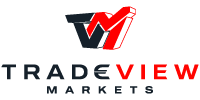
Tradeview
Tradeview Markets, the parent company of Tradeview Forex, was established in 2004 and is headquartered in the Cayman Islands. It is committed to offering a broad and accessible trading environment through ECN trading with direct access to dozens of banks and prime liquidity providers, ensuring tight spreads. The broker offers access to a wide range of financial instruments, including FOREX, indices, stocks, cryptocurrencies, and commodities.
Why we chose Tradeview
Our choice was influenced by this broker’s transparent fee structure and competitive pricing, with low spreads and clear cost disclosures. Traders benefit from predictable pricing without hidden charges. Cost efficiency is a crucial advantage in high-frequency and active trading environments.
| Broker Evaluation | 10.00 |
| Regulations | SCA |
| Minimum Deposit | $0 |
| Islamic Account | Yes |
| Payment Methods | Bank Transfer, Credit Cards, Crypto, Electronic banks, local deposits |
| Main Branch | New York, United States of America |
| Customer Service | |
| Demo Account | Yes |
| Trading Platforms | Metatrader 4, Metatrader 5, cTrader, API/FIX |
Pros
-
Variety of trading platforms, such as MT4, MT5, cTrader, and Currenex, catering to different trading preferences and strategies.
-
Provides ECN trading through its innovative Liquidity Connector®, granting direct access to over 50 banks and liquidity providers. Offers tight spreads starting from 0 pips.
-
A low minimum deposit of only $0 is required to start trading, making it accessible to a wide range of traders.
-
Offers a broad range of financial instruments, including FOREX, indices, stocks, cryptocurrencies, and commodities, thus catering to diverse trading interests.
-
Offers educational materials and a demo account, suitable for both beginners and experienced traders looking to refine their strategies.
-
Supports automated trading through the use of Expert Advisors (EA) on MT4 and MT5 platforms.
-
Regulated by CIMA, MFSA, and will soon be regulated by the UK’s Financial Conduct Authority (FCA).
-
Offers global customer service in multiple languages, catering to international traders.
-
Offers competitive leverage up to 400:1.
-
Charges no fees for deposits, making it cost-effective for traders to fund their accounts.
Cons
-
While regulated by CIMA and the MFSA, the broker is still in the final stages of becoming regulated by the tier-one FCA.
-
This means, unfortunately, that the broker currently has no way of offering compensation to affected traders if the broker goes bust. Of course, once FCA regulation is obtained, it will be mandatory for the broker to be part of the Financial Services Compensation Scheme (FSCS) where you could be entitled to compensation of up to £85,000.
-
Trades on the Innovative Liquidity Connector® account are subject to commission charges, which may add to trading costs.
-
Lacks a dedicated mobile app, relying instead on the mobile versions of its available trading platforms.
-
While offering high leverage up to 400:1 can be an advantage, it also introduces significant risks, especially for new traders.
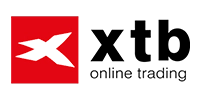
XTB
XTB is a well-regarded broker known for its low costs, extensive asset selection, and advanced trading tools. Founded in 2002 in Poland, it has created a proprietary xStation 5 platform that offers robust features like real-time performance stats, sentiment analysis, and heat mapping. XTB's educational resources are comprehensive, catering to all skill levels with video tutorials, guides, and an accessible Trading Academy. XTB is an excellent choice for cost-conscious traders looking for diverse investment options and high-quality support.
Why we chose XTB
We chose this broker for its responsive and multilingual customer support, available across channels when assistance is needed most. Quick, professional responses reduce friction and build trader confidence. Support quality often reflects overall service reliability.
| Broker Evaluation | 8.55 |
| Regulations | FCA |
| Minimum Deposit | 0$ |
| Islamic Account | yes |
| Payment Methods | Bank transfer, Credit Card, Electronic Banks |
| Main Branch | United Kingdom |
| Customer Service | Market Opening Hours |
| Demo Account | Yes |
| Trading Platforms | MT4, xStation |
Pros
-
20-year history of operation.
-
Regulated by the FCA (UK) and CySEC in Cyprus.
-
Globally recognized, having won multiple awards.
-
Some of the lowest FOREX spreads in the market.
-
Offers protection for client accounts.
-
Emphasis on customer service.
-
Excellent support, as well as learning and research tools.
Cons
-
Does not accept US clients.
-
Number of instruments offered is average-sized.
-
No GSLO.
-
No back-testing or automated trading capabilities.
-
No social trading.

IG Group
IG Group is a highly regarded publicly traded broker that is licensed by 10 regulatory bodies, including the FCA, in its home base of the UK. It offers more than 17,000 financial assets to trade, including currencies, commodities, regular stocks, contracts for difference stocks, ETFs, indices, and cryptocurrencies. Further, it has its own state-of-the-art trading platform and offers a relatively low spread.
Why we chose IG Group
For its clear commitment to transparency and fair dealing, with open terms and client-friendly policies. Honest reporting builds trust and fosters long-term client relationships. We value brokers who prioritise clarity over complexity.
| Broker Evaluation | 8.54 |
| Regulations | FCA |
| Minimum Deposit | $250 |
| Islamic Account | yes |
| Payment Methods | Bank transfer - credit card - Electronic Banks |
| Main Branch | United Kingdom |
| Customer Service | Market Opening Hours |
| Demo Account | Yes |
| Trading Platforms | IG Trading, MT4,ProRealTime,L2 Dealer |
Pros
-
Intuitive mobile and tablet platforms.
-
Low spread costs.
-
Client education offering extensive research materials.
-
Regulated by many reputable authorities.
-
UK and EU clients get negative balance protection.
-
Financially stable and publicly-listed.
-
Rapid response to customer service queries.
-
Extensive range of trading assets.
-
Powerful social trading community.
Cons
-
U.S. clients are limited to FOREX trading only.
-
U.S. clients do not receive negative balance protection.
-
IG CFD prices can be high by industry standards.
-
Limited product portfolio of only CFD and options in many countries.
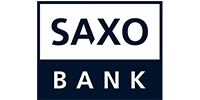
SAXO BANK
Saxo Bank is a well-established, low-risk broker based in Denmark that offers a wide range of trading services to sophisticated traders, institutions, and professional investors. It operates under strict regulatory oversight, ensuring a secure trading environment. The broker provides advanced trading platforms, including SaxoTraderPRO and SaxoTraderGO, catering to high-volume and professional traders with competitive spreads and access to over 71,000 instruments.
Why we chose Saxo Bank
For its comprehensive product range, spanning forex, commodities, indices, and popular CFDs. Such variety allows traders to build diversified portfolios within a single account. This breadth of markets supports evolving strategies and risk preferences.
| Broker Evaluation | 8.09 |
| Regulations | FCA |
| Minimum Deposit | $0 |
| Islamic Account | No |
| Payment Methods | Bank transfer, Credit Card |
| Main Branch | Copenhagen, Denmark |
| Customer Service | Market Opening Hours |
| Demo Account | Yes |
| Trading Platforms | SaxoTrader |
Pros
-
Extensive range of offerings.
-
Offers portfolio-based margin trading for pros.
-
Regulated by top regulators.
-
Excellent trading platforms.
-
Diverse account types.
-
Among the industry’s best research tools.
-
Offers protection for client accounts.
-
No inactivity fee.
-
No platform fees.
-
No minimum funding for entry-level accounts.
Cons
-
Some bonds, options, and futures fees are high.
-
With so many assets, fees can be confusing.
-
High minimum deposit for Platinum and VIP accounts.
-
Does not accept US clients.
-
No MT4 for traders who are used to the platform.
-
No GSLO.
-
No Islamic accounts.
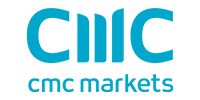
CMC MARKETS
CMC Markets is a global CFD and FOREX broker established in 1989. It is regulated by several authorities globally. The company delivers a formidable offering for traders thanks to excellent pricing, nearly 12,000 tradable instruments, and its proprietary Next Generation trading platform. The platform comes packed with quality research, innovative trading tools, and powerful charting. CMC provides traders with access to an extensive range of CFDs and spread betting across several asset classes.
Why we chose CMC Markets
This broker’s risk management tools and flexible order types stood out to us, enabling traders to tailor positions according to market conditions. Features like stop losses, take profits, and conditional orders provide strategic control. These tools are essential for disciplined trading.
| Broker Evaluation | 8.07 |
| Regulations | FCA |
| Minimum Deposit | 0$ |
| Islamic Account | No |
| Payment Methods | Bank transfer, Credit Card, Electronic Banks |
| Main Branch | United Kingdom |
| Customer Service | Market Opening Hours |
| Demo Account | Yes |
| Trading Platforms | Proprietary Platform, MT4, Web Platform |
Pros
-
Extensive range of offerings.
-
Regulated by the FCA (UK) and other top regulators.
-
Low FOREX fees.
-
Emphasis on education and customer service.
-
Great Web and mobile platforms.
-
Offers protection for client accounts.
-
Research amenities are industry leading.
Cons
-
Does not accept US clients.
-
High CFD spreads for certain indices.
-
It only offers CFD trading, so traders cannot own the underlying asset.
-
Does not support deposits and withdrawals through electronic payments.

think markets
ThinkMarkets is a multi-regulated broker with offices around the globe. The firm is primarily a CFD broker, allowing you to trade across 4,000 instruments in FOREX, futures, commodities, indices, ETFs, crypto, and stocks. With an emphasis on superior customer service, ThinkMarkets maintains round-the-clock support in several languages. It provides different trading accounts suited to individual traders' needs. This includes zero-commission accounts and access to trading guides, analysis tools, and industry news feeds.
Why we chose ThinkMarkets
We selected this broker for its fast and flexible funding options, including bank transfers and card payments. Smooth deposits and withdrawals reduce administrative delays and support efficient capital management. Accessibility of funds is an often-overlooked but essential feature.
| Broker Evaluation | 8.05 |
| Regulations | FCA |
| Minimum Deposit | $0 |
| Islamic Account | Yes |
| Payment Methods | Bank transfer - credit card - Electronic Banks - Crypto |
| Main Branch | Australia |
| Customer Service | Market Opening Hours |
| Demo Account | Yes |
| Trading Platforms | Proprietary Platform, Web Platform, MT4, MT5 |
Pros
-
Beginner assistance is offered through round-the-clock channels.
-
Spreads are as low as 0.0 pips.
-
Round-the-clock expert customer service.
-
CFD shares and indices come at no extra fee.
-
Zero broker fees for FOREX trading.
-
Technical analysis and quality market information.
Cons
-
No binary options are offered.
-
Commissions are charged for two account types.
-
Range of tradeable assets is not as wide as some competitors.
-
No US clients allowed.
How to Verify that a Broker Is ASIC-Regulated
Each Australia-based FOREX broker you're considering should be licensed by ASIC. This information should be readily available on the FOREX companies’ websites, each with a unique AFSL number. If a company claims it is licensed by ASIC, you can straightforwardly verify this by visiting the ASIC website here: https://www.asic.gov.au. By entering the AFSL number or the company name, you can check the legitimacy of the company's licensing claims. If the search yields results, the company's claims are valid. Otherwise, if no results are found, the company is not licensed by ASIC and should be considered unreliable and avoided at all costs.
There is a high degree of risk involved in trading securities like FOREX, or CFDs, which are highly complex instruments. As a trader, you could be exposed to excessive leverage, questionable broker tactics, market volatility, and limited regulatory protection. Despite your best trading techniques and risk management strategies, your efforts may not be profitable, and you could suffer losses.
How Much Money Do You Need to Get Started?
You don’t need much to get started. Some of the best FOREX brokers for beginners allow you to start trading with as little as $50. Of course, you need to capitalize your account with at least some money that will allow you to place trades. The amount is really up to you. However, it is recommended that you start by placing small trades to get to grips with the practice of trading, as well as your broker’s website, before you move on to placing trades with more money.
How to Avoid Scams Through ASIC
ASIC takes several proactive steps to help traders and investors steer clear of scams and to uphold the integrity of the Australian financial marketplace:
Public Warnings: If ASIC becomes aware of entities operating without the required licenses, it issues public warnings. The regulator maintains a warning list on its website, alerting the public to brokers who may be conducting unauthorized activities.
Regular Supervision: ASIC continuously monitors licensed institutions to ensure they adhere to Australian financial regulations. This ongoing supervision reduces the likelihood of licensed entities engaging in scams or fraudulent activities.
Consumer Education: Though not a direct service, the existence of a robust regulatory body like ASIC indirectly educates and informs consumers about the standards they should expect from financial entities. Knowing that a financial institution is regulated by ASIC can provide consumers with a sense of security.
Investigations and Enforcement: ASIC is vigilant against any signs of scams or fraudulent activities within the financial sector. Should there be any suspicion, ASIC is empowered to initiate investigations. If a financial entity is found in breach of regulations, ASIC has the authority to enforce disciplinary actions, which can range from imposing penalties to revoking licenses. For example, ASIC has the capacity to issue bans against individuals or companies found to be non-compliant and can publicize such actions to serve as a deterrent.
While ASIC plays a critical role in protecting traders and investors from scams, it's equally important for individuals to do their homework. Being well-informed and vigilant significantly lowers the risk of falling prey to scams or fraudulent operations.
A regulated broker adheres to a stringent set of guidelines and operational standards, designed to ensure transparency, security, and integrity in all transactions. Electing to trade with an unregulated broker amplifies the risk of financial loss, fraud, and exposure to unethical practices. For a list of the best regulators, read our article here.
What to Look for Among the Best ASIC-Regulated Brokers?
Here’s how we suggest you go about choosing the best ASIC-regulated broker for your needs:
ASIC-Regulated: It sounds obvious, but check and double-check that every broker you consider holds the esteemed ASIC license.
All Traders Welcome: Make sure the broker you choose is Australian-based and accepts local traders and foreign traders, too.
Reputation Is Paramount: Be careful to only consider brokers with an ironclad reputation, meeting, if not exceeding, the industry's stringent safety benchmarks.
Competitive Fees: You should zero in on brokers boasting low floating spreads and competitive per-trade commissions. For more information on how spreads work, read our article here.
Sleek, Feature-Packed Platforms: Beyond usability, try to find a broker whose platform is packed with analytical tools to give you that cutting edge.
Diverse Account Offerings: Recognizing that one size doesn't fit all, consider brokers with a broad spectrum of account types—catering to newbies and elite traders with varied strategies.Diverse Instruments for Every Trader: Every broker should ensure traders have access to a rich mix of instruments across multiple asset classes.
Tip for those who have no experience
We believe that a solid foundation in education and research is essential for every successful trader. That’s why we’ve created a set of resources specifically for you. Our comprehensive articles provide an understanding of the basics, while our videos offer insights from industry insiders. Stay updated with the latest developments in the market through our newsfeed, signals, and detailed analytics.
Commission and Fees
This area of consideration is crucial and requires your close attention. For a start, ASIC-regulated brokers must offer you a competitive fee package. Trading fees can sometimes be difficult to track. Be sure to check how these fees compare with industry standards:
Spreads: There are two main kinds of spread, one is fixed and the other is variable. Generally, the spread refers to the difference or gap between two prices, such as the bid/ask rate in a currency exchange rate. An example of a good spread is 1.4 pips for the EUR/USD (the narrower the better, this means that a spread of 1.4 pips is better than a spread of 2 pips). To find out more about pips, go here.
Commission: This is nothing more than the service charge that brokers require for carrying out transactions on behalf of their clients.
Rollover fees: When you leave a trade open overnight, the broker normally charges a rollover fee for the facility of holding your trade open for that period. This is because they assume the risk of the market changing adversely.
Withdrawal and Deposit Fees: Some platforms might charge fees for depositing or withdrawing funds. Pay attention to this. It's important to be aware of these and any associated limits or conditions.Subscription or Inactivity Fees: Certain platforms have monthly charges or fees for inactive accounts. Ensure you're aware of these potential costs.
To assess trading costs accurately, the Arincen research team examined broker pricing across multiple sources, combining published fee schedules with observed trading conditions. Our analysis focuses on spreads, commissions, and additional charges that impact traders in practice. You can see the consolidated findings in the table that follows.







| Spread | Commission | Swap | Islamic Account | |
| Currencies | Starting from 1.3 Pips | 0$ | No | Available |
| Stocks | Starting from 18 Pips | 0$ | Yes | Unavailable |
| Commodities | Starting from 2.3 Pips | 0$ | No | Available |
| Indices | Starting from 4 Pips | 0$ | Yes | Unavailable |
Using Leverage with ASIC-Regulated Brokers
This is linked to our point above about regulation. Different regulators have different guiding policies in leverage. Consider this, with brokers based in Europe operating under the rules of the European Securities and Markets Authority (ESMA), the leverage for Contracts for Difference (CFD) is heavily regulated. Because of this, you can only get leverage of:
30:1 for major currency pairs
20:1 for non-major currency pairs, gold, and major equity indices
10:1 for commodities other than gold and non-major equity indices
5:1 for individual equities and any underlying not otherwise mentioned
2:1 for cryptocurrencies
However, you should note that ASIC does not fall under ESMA rules. Australia is not a member of the European Union. Therefore, it is not directly subject to the regulations and directives of ESMA, including the Markets in Financial Instruments Directive II (MiFID II).
However, it's worth noting that Australia strives to maintain a financial regulatory framework that is in many ways comparable and competitive with international standards.
Regarding leverage, ASIC hasn’t set a specific maximum leverage limit for FOREX trading as is seen in some other jurisdictions, like those governed by ESMA in the European Union.
However, brokers operating in Australia under ASIC are expected to follow strict risk-management protocols, and they are required to ensure that their clients are trading within their means and understand the risks associated with leverage.
It's worth noting that leverage offerings can vary among Australian brokers, and it's always a good practice for traders to verify the current rules and offerings directly with the regulator.
This ties back to our previous discussion on regulation. Different regulatory bodies have distinct policies regarding leverage. For instance, in Europe, the ESMA strictly regulates leverage for CFD trading, as noted above.
ASIC does not operate under ESMA's rules. Nonetheless, Australia aims to keep its financial regulatory framework aligned with global standards, ensuring a competitive edge on the international stage. Here are some key leverage limits according to ASIC:
30:1 for major currency pairs
20:1 for non-major currency pairs, gold, and major equity indices
5:1 for stock CFDs
2:1 for cryptocurrency CFDs
The leverage restrictions are aimed at protecting retail traders from taking on excessive risk and potentially incurring large losses. ASIC requires brokers operating in Australia to adhere to stringent risk-management practices. These brokers must ensure their clients are trading within their financial capabilities and fully comprehend the risks associated with leverage.
Retail traders should be cautious when trading with high leverage due to the significant risks involved. While leverage can increase gains, it can also magnify losses. You should be careful when trading with high leverage, that’s why you need the right knowledge and experience to handle the highs and lows that come with this form of trading.
ASIC and Negative Balance Protection
ASIC mandates negative balance protection for retail CFD traders in Australia. The ASIC product intervention order that came into effect on March 29, 2021, includes a requirement for "negative balance protection," which means that retail traders cannot lose more than the total balance in their trading account, even in the event of extreme market volatility or "black swan" events.
This ensures that traders will not end up owing money to their broker if their losses exceed their account balance. The negative balance protection rule applies to all new positions opened by retail clients after the date it came into effect, as mentioned above. Existing positions opened prior to that date are also subject to the new 50% margin close-out rule.
Tradable Assets and Instruments
Some of the most common assets includeFOREX,commodities,crypto, bonds, and more. All the top ASIC-regulated brokers normally have these bases well covered. Some brokers choose to concentrate on FOREX, while others may be strong in other areas. It depends on your interests. When comparing brokers, a handy hint is to create a spreadsheet where you compare the numbers of the tradable assets you may want to trade. Remember that the availability of tradable assets varies depending on the broker and trading platform being used.
As part of our evaluation process, the Arincen team gathered and cross-checked broker pricing from official documentation and live trading environments. This approach allowed us to compare spreads, commissions, and fees under actual market conditions. The breakdown of our findings is presented in the table that follows.
| Brokers | Currency pairs | Stocks | Indices | Commodities | Crypto | ETFs |
| Tradview | 80 Pairs | 5000 Shares | 10 Indices | 10 Commodity | 30 Coins | Unavailable |
| ICM Capital | 67 Pairs | 89 Shares | 17 Indices | 12 Commodity | 6 Coins | Unavailable |
| XTB | 57 Pairs | 1848 Shares | 36 Indices | 22 Commodity | 22 Coins | 135 ETFs |
| IG | 81 Pairs | 21714 Shares | 49 Indices | 39 Commodity | 11 Coins | 12858 ETFs |
| Saxo Bank | 320 Pairs | 22000 Shares | 49 Indices | 39 Commodity | 9 Coins | 6700 ETFs |
| CMC Markets | 330 Pairs | 8000 Shares | 80 Indices | 100 Commodity | 18 Coins | 200 ETFs |
| Think Markets | 46 Pairs | 3750 Shares | 15 Indices | 11 Commodity | 21 Coins | 350 ETFs |
Choosing the right broker means balancing cost, reliability, and market access. Compare trading fees, asset coverage, and leverage conditions across regulated platforms. Study execution speed, slippage history, and available analytical tools. A serious trader picks a broker that performs well under real market pressure, not just on paper.
Payments, Deposits, and Withdrawals
Ideally, the payment deposit-and-withdrawal process among ASIC-regulated brokers should be straightforward and convenient. As we have mentioned, Australia has a modern financial infrastructure, and its banking system is advanced, making transactions, including withdrawals from brokerage accounts, relatively straightforward for all traders. The best brokerages offer multiple withdrawal methods, including bank wire transfers, credit/debit card transactions, and even online payment systems. The efficiency of these methods can vary, with wire transfers to Australian banks typically taking several business days, whereas online payments tend to be much quicker.
Our pricing review draws on Arincen’s independent research, where we analysed broker cost structures using both advertized rates and real-world trading data. By comparing spreads, commissions, and related fees, we aimed to reflect what traders are likely to experience. The outcome of this assessment is displayed in the table below.







| Method | Credit Card | Wire Transfer | Skrill | Neteller | Cryptocurrency | PayPal |
| Deposit fee | 0$ | $0 + Bank commission | 1.9% | 2.5% | Unavailable | 3.75% |
| Withdrawal fee | 0$ | $15 | 1% | $0 | Unavailable | 2% |
The Importance of Customer Service
To get the best level of attention from your broker, you must pick an ASIC-regulated broker that can provide good customer support around the clock. This most notably includes the company representatives being easy to reach, fast, and polite, which will, in turn, spare you having to worry about problems later.
Based on in-house analysis by the Arincen team, we reviewed pricing data from both official broker websites and live market conditions. This included spreads, commissions, and trading fees observed in real use. The results of that comparison are summarized in the table below.







| Live Chat | Phone | |||
| Available | Available | Available | Available | Available |
| Quick response | Quick response | Fast | Fast | Fast |
Ask Other Traders on Our Network
Here at Arincen, we’ve gone to extensive lengths to create an enabling environment of networks, where traders of all backgrounds can take part in a vibrant trading space. After all, Arincen’s goal is to simplify the world of trading. Our website provides an unrivaled selection of tools, like our market-leading signals, rolling news, and a thriving community where traders of all levels of experience can learn and profit from each other.
Trading Platforms, Tools, and Features
In the dynamic Australian trading environment, brokers are in constant competition to offer a variety of tools to improve your trading journey. Given the competitive nature of the market, innovation is the name of the game.
Many brokers feature unique, proprietary trading platforms, while others rely on industry-proven platforms like MT4, MT5, and cTrader, which are favorites for their reliability and comprehensive features. For an insightful comparison of the MetaTrader platforms, read our article here. Australia's technological infrastructure is robust, providing the necessary support for brokers managing high-volume trading with the need for rapid network capabilities.
When you choose a broker regulated by ASIC, you're typically gaining access to cutting-edge platforms that offer extensive market access and boast exceptionally high rates of platform reliability. It's crucial to investigate these aspects thoroughly before deciding on the broker that best fits your trading needs.
Tips to Get Started Trading with an ASIC-Regulated Broker
Opening a FOREX trading account is easy. Once you have chosen your preferred ASIC-regulated broker, you must start by filling out an application form as part of the “open account” process. Typically, you will be asked to provide two documents. These are usually your national identity documents and proof of address. This is part of Know Your Customer (KYC) regulations. Remember that some brokers have slightly different requirements than others.
Once your account has been approved, normally one to two days after you make the application, you will be able to fund your account by making the first deposit. After your account is funded, you can start to trade.
How to Improve Your Knowledge of FOREX Trading
A trading website like en.Arincen.com is a great place to start. We have a large list of curated articles that can give you all the information you need on common FOREX trading terms, like pips, spreads, leverage, and support and resistance. We have also taken the time to prepare detailed articles on important topics, such as FOREX trading strategies. Additionally, once on our Website, you will find helpful video courses that cover the basics of FOREX trading. With this range of knowledge, you will be well on your way to trading success.
Remember also that your broker will normally have developed a detailed education and research repository itself. That is also a good place to bolster your FOREX knowledge, with the extra benefit that your broker’s information will be slanted toward its own platform and resources, which makes it doubly useful.
As such, it’s relatively easy to improve your knowledge of FOREX trading. All the following items should be part of an ASIC-regulated broker arsenal, and they should all help you improve your knowledge of FOREX trading.
Educational Content: For beginners, educational resources are crucial. Watch for platforms offering webinars, tutorials, articles, and even demo accounts to familiarize users with trading concepts.
Analytics Tools: The platform should offer robust analytical tools and many methods to evaluate trader performance. This includes historical returns, risk metrics, trading strategies, and more.
Community Engagement: A vibrant community can provide peer reviews, insights, and discussions, which can be invaluable for both novices and experienced traders.Real-time Data: This is the lifeblood of social trading. Make sure your broker gives you access to live market data, news updates, and economic calendars that can help in making informed decisions
Tip: Invest in Your knowledge
For every aspiring retail trader, knowledge is key to a successful trading journey. We invite you to delve into Arincen's goldmine of insights, strategies, and expert analyses. Whether you're just embarking on your trading venture or trying to level up your trading game, our resources are designed to give you all the information you need. Visit our educational resources here.
Filing a Complaint Against a FOREX Broker
In the rare cases where your FOREX broker has unlawfully tampered with your account, then you can file an official complaint with ASIC by visiting: https://asic.gov.au/.
It is very unlikely that a ASIC-licensed company would dare meddle with your account for fear of the repercussions that may result. These include canceling the company’s ASIC license and/or closing it down altogether.
Let’s Recap
Australia has an enviable reputation when it comes to the efficiency and reliability of its financial sector. For FOREX brokers, Australia has implemented rigorous regulations to ensure seamless operations across its financial landscape.
This ensures that ASIC is widely recognized as one of the most authoritative financial regulators globally. This reputation benefits all retail traders who are active in this marketplace. It makes it a no-brainer that opting for a FOREX broker regulated by ASIC offers a significant layer of security and protection, whether you’re an Australian or an international client.
Arincen’s Review Methodology
The team at Arincen collected more than 120 pieces of data covering more than 100 licensed FOREX companies. Data collection was done in three ways:
Companies’ websites.
Other websites that have ranked FOREX companies.
A survey questionnaire (referred to here as Survey “1”) was sent to the companies invited to participate in the exercise. We have identified 13 criteria for our assessment, each containing several aspects and carrying its relative weight. These include licensing, deposits and withdrawals, number of assets, etc.
Afterward, we validated the data by:
Registering with FOREX companies as a secret shopper and/or as Arincen.
Survey number “2,” in which we asked these companies’ customers for important feedback and experience.
The next step saw us evaluate and rank each company, relying on the hard work of 15 Arincen employees. We were cautious in ensuring the most accurate assessment possible, including taking into account different languages, as well as the various mobile-app operating systems, e.g., Apple, Samsung, etc.
To add credibility to our research project, we sent a third and final survey (referred to here as Survey “3”) to enable participating FOREX companies to evaluate our research and whether it accurately reflects the realities on the ground. We were fortunate enough to receive a mark of 9.9 out of 10! We have kept to a minimum the margin of error, which stood at a measly 1%. To learn more about how we came up with the evaluation, please click here.
FAQ
FOREX trading involves buying one currency while selling another, aiming to profit from the changes in their relative values.
We would not advise you to work with any broker that is not regulated by a good regulator, be that in Australia or anywhere else. Of course, you could still go ahead and do it; however, you may not find such a broker in Australia as the market is so tightly controlled by ASIC.
ASIC oversees a framework designed to protect consumers, called the Financial Claims Scheme (FCS). However, this is mainly for deposits held in banks and similar financial institutions. For FOREX brokers, ASIC mandates that firms hold clients' money in segregated accounts to protect it from being used for any purpose other than the client's trading activities. In the event of a broker's insolvency, these funds are intended to be protected from the claims of creditors, thus offering a degree of security to traders.
Research and compare brokers based on factors like regulations, spreads, the leverage offered, platform usability, customer service, and client reviews. It's essential to select a broker regulated by a reputable authority.
Yes, FOREX trading is subject to taxation in Australia, but the specifics depend on the nature of the income and the individual's tax status. Overall, it's crucial to consult with a tax specialist.
Different brokers have different minimum deposit requirements. Some brokers allow you to open accounts with as little as $1, while others might require $500, $1,000, or more. How much you should start with depends on your goals, strategy, risk tolerance, and the parameters set by your chosen broker.
Leverage in financial trading refers to the ability to control a large position with a relatively small amount of capital. It's a tool provided by brokers that amplifies a trader's capacity to trade by allowing them to deposit a fraction of the full value of their trade. This magnifies both potential profits and potential losses.
Yes, FOREX trading involves significant risk. It's possible to lose more than your initial investment, especially when using high leverage. Proper risk management strategies are crucial.

